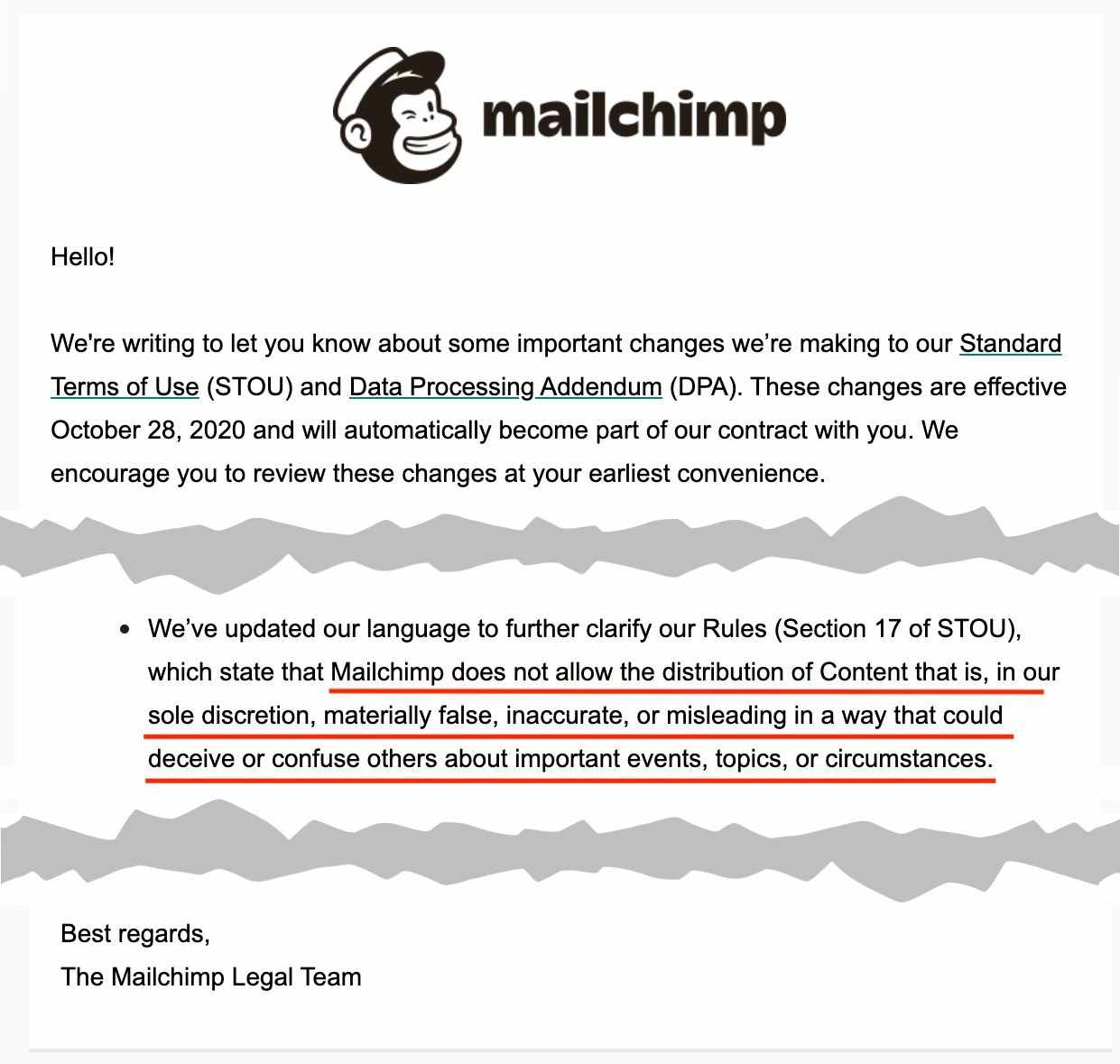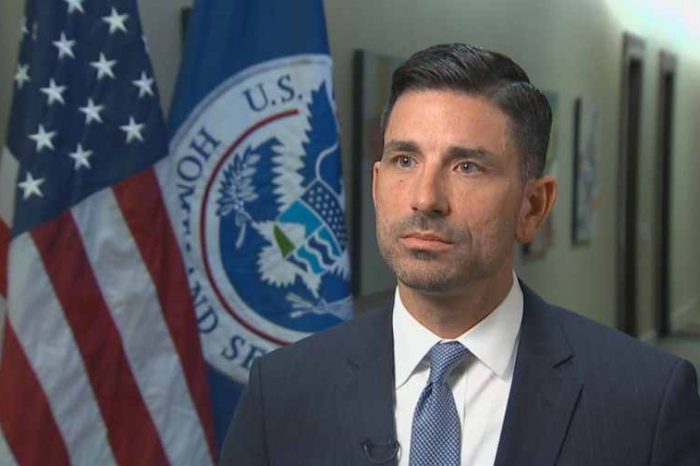Forget about Big Tech censorship, Mailchimp is now going to fact-check all your emails

Just when you think you can’t get enough of Big Tech censorship, Mailchimp announced this week that it will start deleting ‘misleading’ and materially false content sent via its platform effective October 28, 2020. It was not clear how Mailchimp plans to enforce the new rule, or if it is doing it for a political reason. The announcement comes at a time when tech companies are under increasing pressure to explain how they control users’ content.
Mailchimp now joins one of the several tech companies that fact-check users’ content. In the past few weeks, Facebook, Google, and Twitter have been accused of censorship users’ content on their platform. Early this mont, Facebook and Twitter censored sourced reporting from the New York Post’s story about bombshell emails and video obtained from Hunter Biden’s laptop.
In an email sent to customers on Wednesday, Mailchimp said:
“Mailchimp does not allow the distribution of Content that is, in our sole discretion, materially false, inaccurate, or misleading in a way that could deceive or confuse others about important events, topics, or circumstances.”
The question is: What criteria will they base their decisions to dismiss content as misleading or false on? The other question is: How does Mailchimp know what’s in the email without reading the email content?
Later today, Mailchimp issued the following statement:
“We recognize how important it is to curb the spread of misinformation, and we take it very seriously. Mailchimp recently updated its Standard Terms of Use(STOU) to make it even more clear that we do not allow the use of our Marketing Platform to disseminate misinformation. Specifically, Mailchimp updated its terms to further clarify our Rules (Section 17 of STOU), which state that we do not allow the distribution of Content that is materially false, inaccurate, or misleading in a way that could deceive or confuse others about important events, topics, or circumstances. This deception or confusion can cause real-world harm.
“We use a combination of human-run and automated systems to guard against abuse, and we take action against misuse of our platform when we find it through our own processes or after investigating when we receive complaints.”
Below is a screenshot of the email message Mailchimp sent to its customers.





